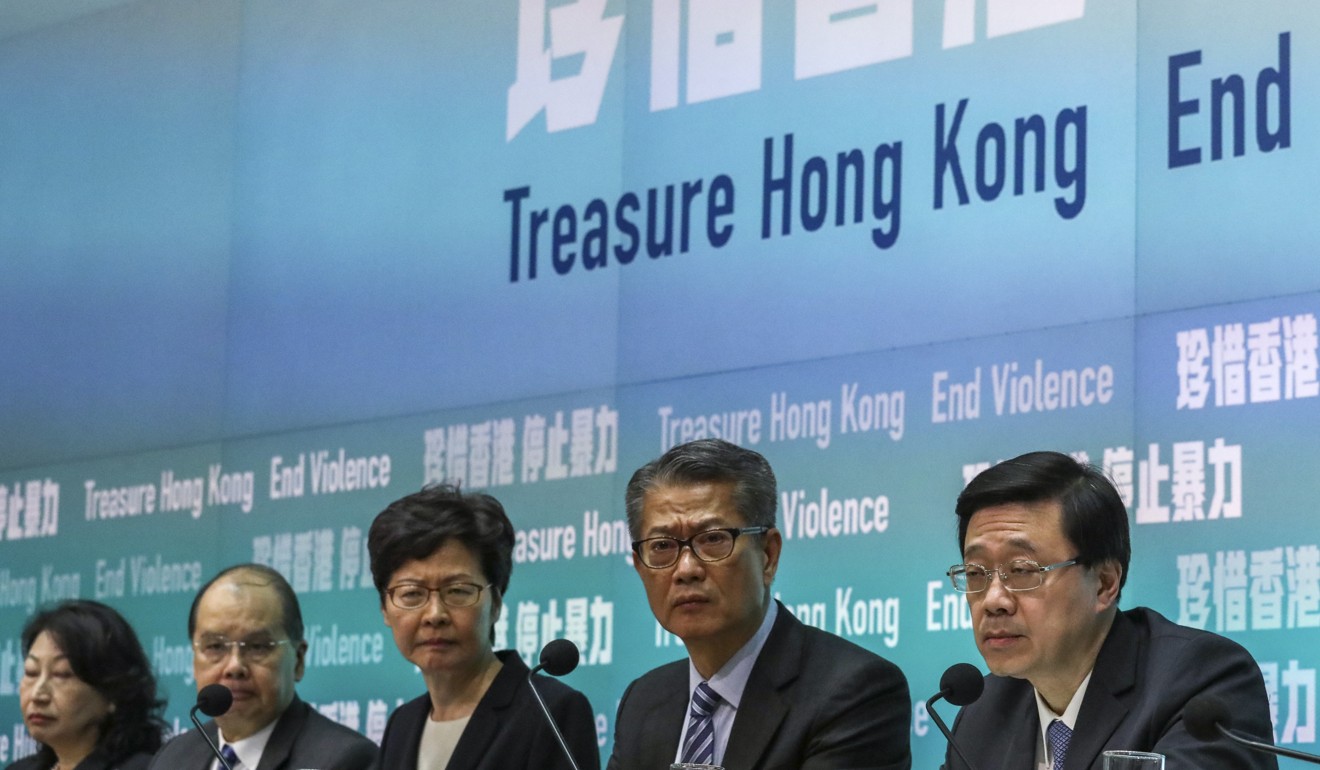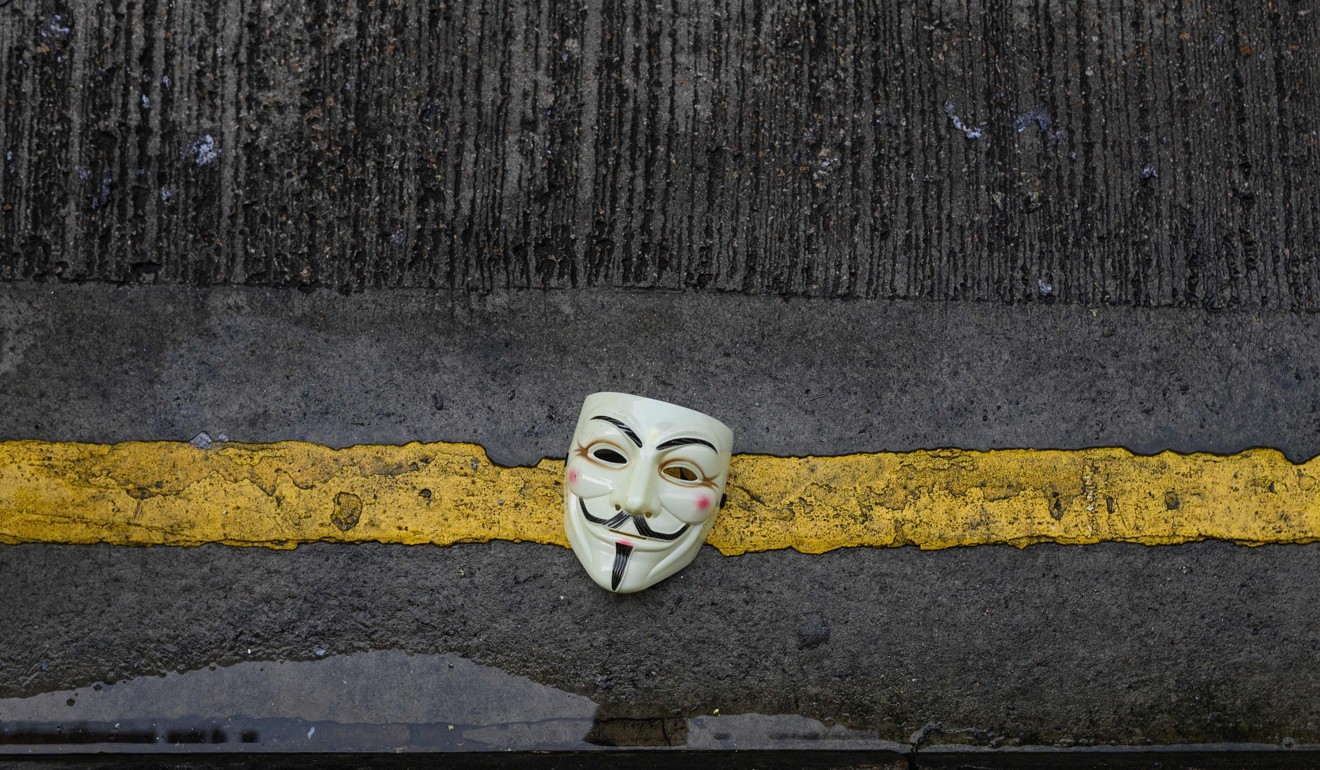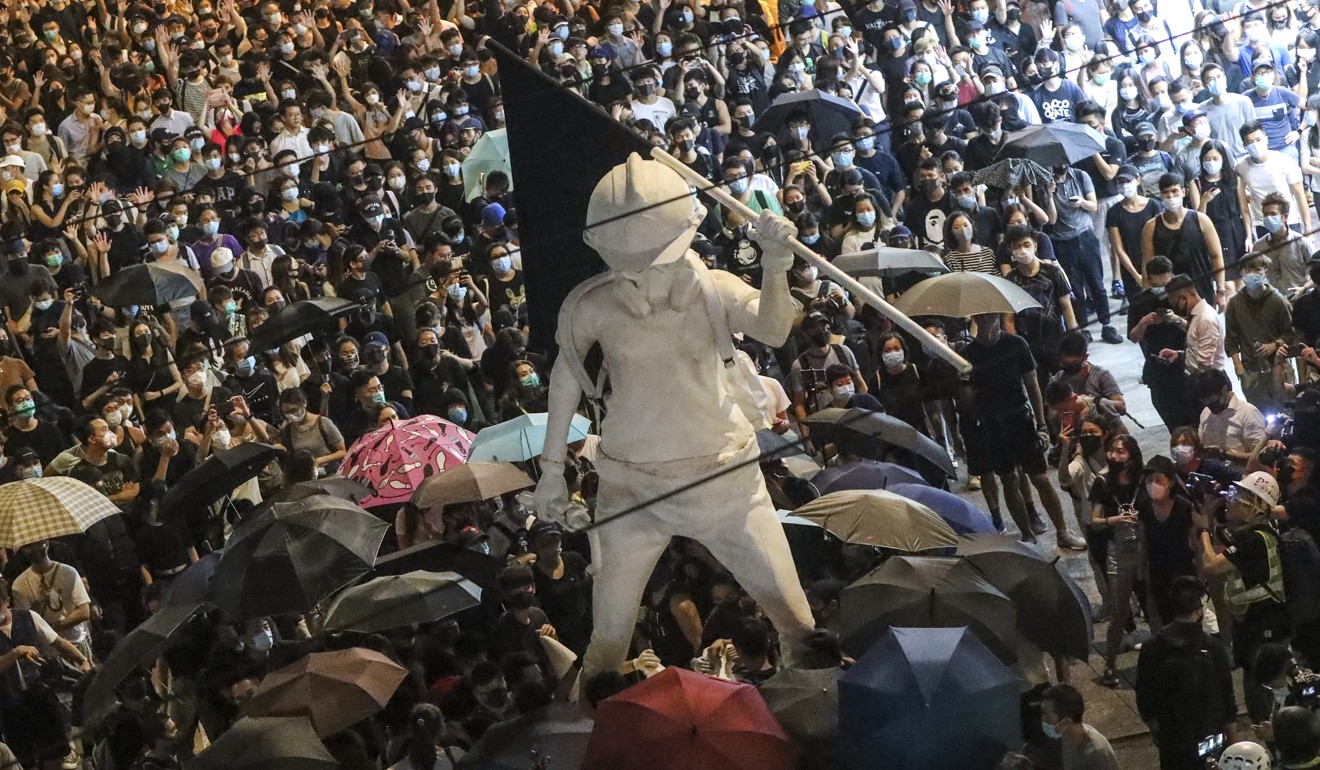Anti-mask law in Hong Kong: Carrie Lam’s government faces two legal challenges against controversial bid to quell protests
- Retired civil servant and former student leader launch separate judicial reviews within hours of anti-mask law unveiling
- Legal experts warn of negative impact on authorised protests and innocent bystanders

The government’s move to ban the wearing of masks during Hong Kong protests faced two court challenges within hours of being announced on Friday, with legal experts raising concerns over the scope of the regulations.
A retired civil servant and a former student leader have launched separate judicial reviews targeting Hong Kong leader Carrie Lam Cheng Yuet-ngor’s decision to use emergency powers to bring in anti-mask legislation.
They argued the regulations outlawing the covering of faces during public assemblies, set to take effect at midnight on Friday, contravened their rights to assembly, while lawyers feared the ban would also affect bystanders.
Defending the intervention, Secretary for Justice Teresa Cheng Yeuk-wah said human rights were not absolute. Another top government adviser suggested it was not a civil right for someone to wear a mask.
Flanked by her eight principal officials on Friday afternoon, chief executive Lam said she would invoke the Emergency Regulations Ordinance due to the threat to public safety from the protests, the first time the powers had been used since the city returned to Chinese rule in 1997.
The government imposed the ban in the hope it would quell several months of anti-government protests, which were sparked by the now-withdrawn extradition bill and have descended into regular outbreaks of violence.
Hardline protesters have become increasingly violent but have evaded justice by concealing their faces, police said.
The regulation bars anyone from wearing “facial coverings” during demonstrations that are “likely to prevent identification”.
The ban applies regardless of the legal status of the assemblies, with those convicted facing up to one year in jail and a HK$25,000 (US$3,187) fine.

Face coverings are defined as “a mask or any other article of any kind that covers all or part of a person’s face”.
In both their judicial review applications, former student leader Lester Shum, who was involved in 2014’s Occupy protests, and retired civil servant Kwok Cheuk-kin urged the court to declare the face-covering ban incompatible with the city’s Bill of Rights and the Basic Law, which is the city’s mini-constitution and guarantees freedom of speech and assembly.
Shum argued the ban was so wide it barred peaceful protesters from wearing masks even during approved rallies, putting them at risk of repercussions from employers who have a different political stance.
He cited Hong Kong’s biggest airline, Cathay Pacific, saying it had fired staff after being pressured by Beijing as the protests – now set to enter their 18th consecutive weekend – continued.
“Many people will be deterred from joining the protests. As a result, their right to demonstrate, their rights to join peaceful and legal assemblies will be demolished,” Shum said.
Constitutional law scholar Johannes Chan Man-mun, from the University of Hong Kong, said there was no reason why masks should be prohibited at authorised public meetings or processions.
“Participants may wear masks, not because they intend to commit any crime, but simply to protect themselves,” he said.
He also expressed doubts over whether the situation on the ground in Hong Kong warranted the government’s deployment of the emergency law in the first place.

Barrister Tien Kei-rui noticed that instead of using phrases such as “persons taking part” in protests, the government’s legal paper chose to include anyone present.
“It would mean that even bystanders would be liable,” Tien said.
The regulation also gave police officers the power to require a person to remove his or her mask at public places.
Those who failed to comply would have their masks removed by officers under an offence carrying a maximum prison sentence of six months and a fine of HK$10,000.
“It [the law] is too wide. It has nothing to do with rallies,” the barrister said.
But senior counsel Ronny Tong Ka-wah, a member of Lam’s top advisory body, the Executive Council, said he did not see any problem with the legislation for now.

On whether it was constitutional, Tong said it was the court’s responsibility to weigh restricting individual human rights against the need to detect crime.
“But it was never a right for someone to wear a mask,” Tong said.
Cheng, the justice chief, said the government was aware of concerns that people might raise, and had considered the Basic Law’s provisions when drafting the legislation.
She said human rights enshrined in the Basic Law were not absolute, noting there could be proportionate restrictions on those provisions, such as for upholding the law.
Former director of public prosecutions Grenville Cross said there were sufficient exemptions in the regulation.
“Legitimate exceptions have been incorporated into the regulation, as where religious or medical reasons justify the wearing of masks, and these are clearly sensible," he said.
He added he hoped the ban would allow some to “pause for thought”, although he said the maximum penalty could have been higher to increase the deterrent effect.